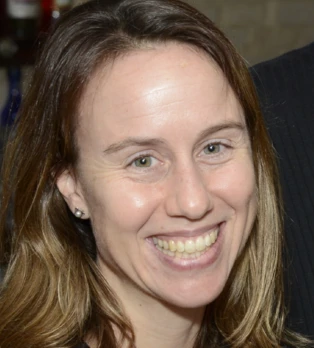
In addition to – and perhaps related to – the heightened risks women take in cross-border trade, they are underrepresented in the institutions that manage those borders. Men dominate the ranks of customs officials around the globe. One recent count estimated just 45 women in leadership positions in customs administration worldwide.
The World Customs Organization (WCO) is trying to change that statistic. On July 1, the WCO, with support from the World Bank, will hold a conference in Brussels to stimulate a conversation about women in customs - about their empowerment through both trade and public administration. Called the Women in Customs, Trade and Leadership Conference, the day-long agenda will address the hurdles faced by women in a wide range of roles, from informal traders to customs officials.
Attendees will hear from inspiring women who are leaders in customs administrations from Malawi to the United States. They will hear from experts in public administration, development and logistics. The topics include the challenges faced by informal traders, the ways customs administrations can support women as “economic actors,” and the ways in which women can work effectively in male-dominated customs organizations.
The subject of women’s treatment at the border and within border agencies is important because gender inequities can constrain a country’s ability to grow and increase trade. They can inhibit countries’ competitiveness in the world economy.
This video shows the chaotic conditions at the border dividing the Democratic Republic of the Congo from Rwanda. Those interviewed points out that most of the people crossing are poor women who struggle to survive. These entrepreneurs often cannot read and do not get receipts; unscrupulous officials ask them for more money when they have no proof of payment. This dynamic holds back business growth and development.
Gender equity in trade is also a topic that should not be ignored by men. It is a business issue in a sphere where men make many of the decisions. In fact, in Australia, the government took a successful approach that incorporated important male viewpoints: it convened a group of male, corporate leaders to speak about their experiences as “male champions” for women and describe how they helped elevate women to senior roles within their companies.
In tandem with the conference, the World Bank is supporting a number of customs officials from developing countries as they participate in a Leadership and Management Development project designed to help them gain deeper personal insight into their management styles. The goal is to help these officials more effectively influence change in their customs administrations.
While some progress is being made in customs administrations – 45 women in leadership positions is better than zero half a century ago – the sector still has a long way to go in better making use of its labor pool. According to WCO statistics, 87.5 percent of all heads of customs administrations are men. There are a total of 22 women in that position – seven are from developed countries (representing less than 20 percent of all developed countries), and 15 are from developing countries (representing less than 10 percent of all developing countries).
The WCO is not immune from this phenomenon: In 60 years, it has never had a woman as Secretary General. Maybe addressing that statistic should be next on the WCO’s agenda.
The Women in Customs, Trade and Leadership Conference is open to the public and free for one member of each WCO member administration. To register, click here.



Join the Conversation